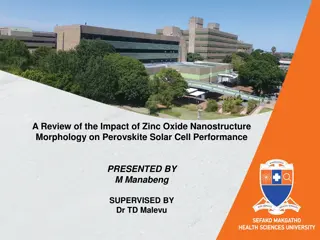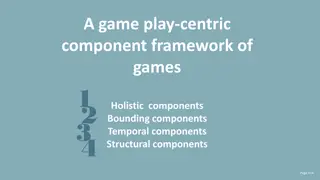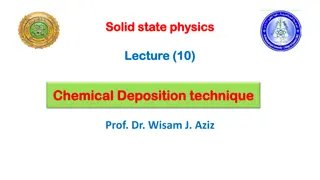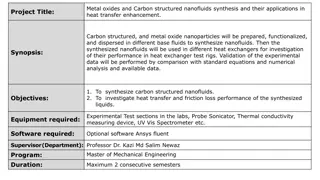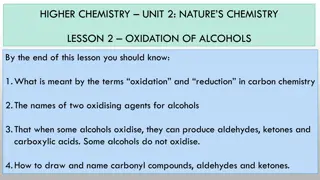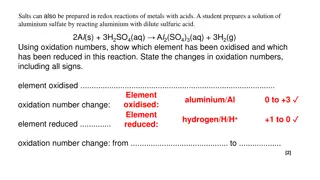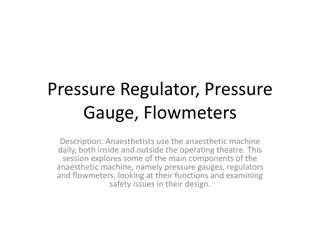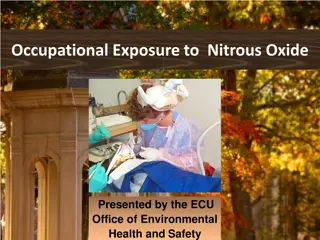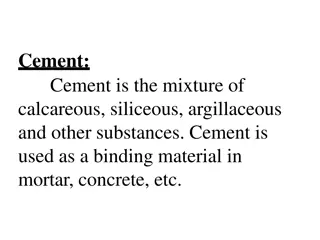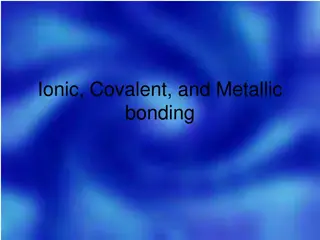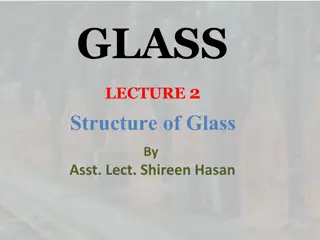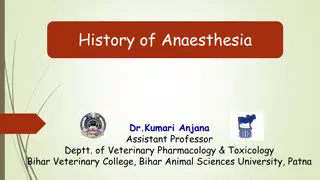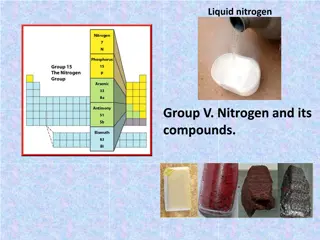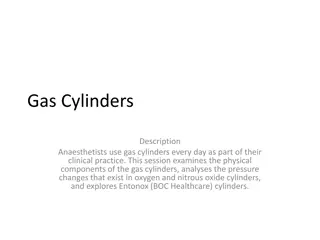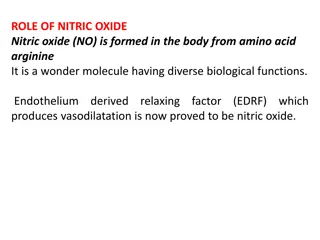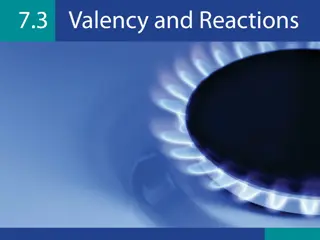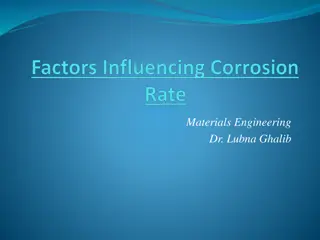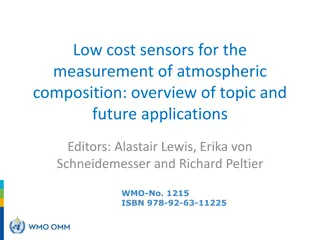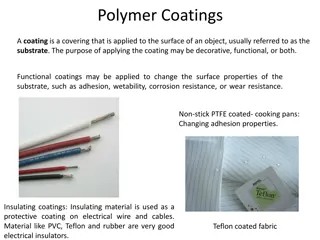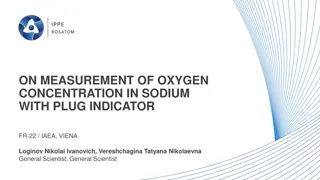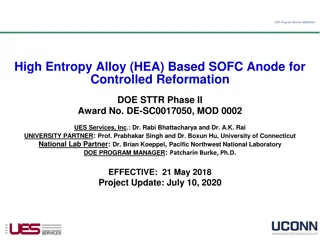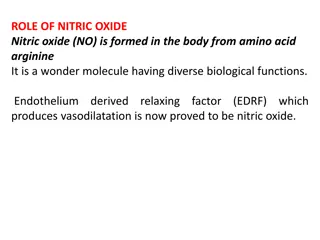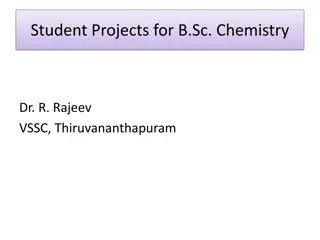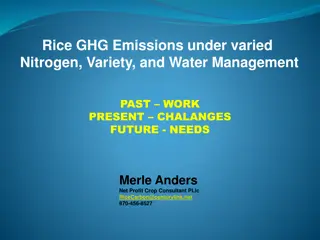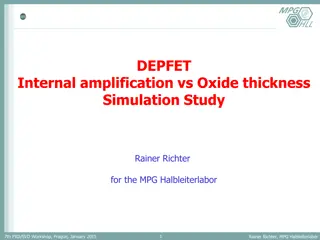OBAGI Sun Shield Matte, dermsilk.com
Protect your skin complexion with OBAGI Sun Shield Matte Broad Spectrum SPF 50. It\u2019s for all skin types and contains Zinc oxide that deflects UV rays to prevent skin damage & aging. \/\/rb.gy\/3frlbx
1 views • 3 slides
Impact of Zinc Oxide Nanostructure on Perovskite Solar Cell Performance
This presentation explores the influence of zinc oxide nanostructure morphology on the performance of perovskite solar cells. Covering topics from solar energy basics to the structure of perovskite cells, it delves into synthesis methods, challenges, and future directions in this field. With a focus
1 views • 18 slides
Exploring Holistic Components in Game Design Frameworks
This content delves into a game play-centric component framework that encompasses various elements such as holistic components, bounding components, temporal components, and structural components. It discusses the setup and execution of game sessions, different modes of play, player goals, events, a
6 views • 22 slides
Laser Cleaning Applications and Technology Overview
Laser cleaning technology offers versatile solutions for various industrial applications, such as mold cleaning, rust and oxide removal, pretreatment, degreasing, and more. By using pulse or continuous wave lasers, different materials can be efficiently cleaned or treated without damage. Pulse laser
7 views • 9 slides
Understanding Ionic and Covalent Bonding in Chemistry
Ionic bonding involves the transfer of electrons between a metal and a non-metal to form a giant lattice structure, like in sodium chloride and lithium oxide. Covalent bonding, on the other hand, occurs between non-metals, resulting in giant covalent structures or simple molecules. Examples such as
4 views • 79 slides
TOP 10 COMPANIES IN ELECTROLYZERS MARKET
Hydrogen is either stored as a compressed gas or liquefied, and since hydrogen is an energy carrier, it is used to power any hydrogen fuel cell electric application such as trains, buses, trucks, or data centers. The three main types of electrolyzers are proton exchange membrane (PEM), alkaline, and
3 views • 3 slides
Buy OBAGI Sun Shield Matte, dermsilk.com
Protect your skin complexion with OBAGI Sun Shield Matte Broad Spectrum SPF 50. It\u2019s for all skin types and contains Zinc oxide that deflects UV rays to prevent skin damage & aging. \/\/tinyurl.com\/y2p7p9dp
2 views • 3 slides
Magnesium Oxide Market Size, Worth, Overview, Scope & Analysis to 2022-2029
The Magnesium Oxide Market\u00a0research, a thorough examination of the state of the industry, market size, demand trends, development patterns, and projections from 2022 to 2029, was just published by Adroit Market Research.
0 views • 5 slides
OBAGI Sun Shield Matte SPF 50
Protect your skin complexion with OBAGI Sun Shield Matte Broad Spectrum SPF 50. It\u2019s for all skin types and contains Zinc oxide that deflects UV rays to prevent skin damage & aging. \/\/rb.gy\/812dw2
2 views • 3 slides
Chemical Deposition Techniques in Solid State Physics
Chemical deposition is a fabrication technique using different chemicals for reactions, allowing coatings to form successfully. Techniques include spray pyrolysis, electrochemical deposition, dip coating, and more. Spray pyrolysis, cost-effective and versatile, is used in various commercial processe
1 views • 25 slides
Advanced Research in Nanofluids and Heat Transfer Enhancement
This project focuses on synthesizing carbon structured and metal oxide nanoparticles to create nanofluids for use in heat exchangers. The research includes investigating heat transfer performance, friction loss, and drag reduction of the synthesized fluids. Additional studies involve exploring novel
0 views • 5 slides
Understanding Oxidation of Alcohols in Carbon Chemistry
Oxidation of alcohols involves either adding oxygen or removing hydrogen in carbon compounds, leading to the production of aldehydes, ketones, and carboxylic acids. Primary alcohols can oxidize further to produce aldehydes and carboxylic acids, while secondary alcohols form ketones. Tertiary alcohol
1 views • 13 slides
Understanding Redox Reactions in Chemistry
Salts can be prepared through redox reactions involving metals and acids. This interactive lesson covers oxidation numbers, identifying oxidized and reduced elements, and explaining electron transfer in redox reactions. Examples include reactions of aluminum with sulfuric acid and magnesium with cop
2 views • 12 slides
Understanding Anaesthetic Machine Components: Pressure Gauges, Regulators, and Flowmeters
Anaesthetists rely on pressure gauges, regulators, and flowmeters in anaesthetic machines for safe administration of gases. Pressure gauges monitor oxygen, nitrous oxide, and medical air levels, each uniquely calibrated. Differentiating oxygen and nitrous oxide gauges is crucial due to storage diffe
1 views • 23 slides
Nitrous Oxide Occupational Exposure Guidelines and Monitoring
This information covers the occupational exposure to nitrous oxide, including its uses, chemical description, routes of exposure, health effects, monitoring methods, and regulatory exposure limits. Nitrous oxide is a colorless gas with various applications in medical, dental, and food processing ind
2 views • 18 slides
Overview of Cement: Types, Composition, and Functions
Cement is a vital building material consisting of various compounds like lime, silica, and alumina. It is used in mortar and concrete. The chemical composition of cement includes elements like iron oxide and gypsum. Different types of cement serve specific purposes such as rapid hardening or sulfate
0 views • 29 slides
Understanding Bonding in Chemistry
Delve into the world of chemical bonding through ionic, covalent, and metallic bonds. Explore how elements form bonds, from the attraction between sodium and chloride ions to the sharing of electrons in covalent bonds. Witness the formation of compounds like sodium chloride and magnesium oxide, unde
1 views • 12 slides
Understanding the Structure of Glass for Beginners
Explore the structure of glass, including the role of glass formers, intermediates, and modifiers in creating the unique properties of different types of glass. Learn about the essential oxide components, such as SiO2 and B2O3, and how they contribute to the formation of glass networks. Discover the
2 views • 21 slides
Evolution of Anaesthesia: From Ancient Methods to Modern Techniques
Anaesthesia has come a long way from ancient methods like cold concussion and hypnosis to modern techniques using nitrous oxide, ether, and chloroform. The discovery and evolution of anaesthesia through key milestones like the introduction of nitrous oxide, ether anaesthesia demonstration, and chlor
0 views • 12 slides
Understanding Nitrogen: Properties, Reactions, and Applications
Nitrogen, a colorless and odorless gas, is a vital element present in air and plays a crucial role in various chemical reactions. Known for its unreactive nature due to strong bonds, nitrogen is used in the manufacture of ammonia, fertilizers, and organic compounds. Discover how nitrogen is prepared
0 views • 43 slides
Understanding Gas Cylinders in Clinical Practice
Anaesthetists rely on gas cylinders daily for medical practices. This session delves into the physical aspects of gas cylinders, analyzes pressure changes in oxygen and nitrous oxide cylinders, and explores Entonox cylinders. Key topics include identifying cylinder components, managing pressure chan
0 views • 16 slides
Innovations in CO2 Utilization Technologies Drive Market Growth
Carbon Dioxide Market By Source (Hydrogen, Ethyl Alcohol, Ethylene Oxide, Substitute Natural Gas, and Other Sources), By Application (Plastics, Inks, and Coatings), By Form(Liquid, Gas, Solid), By Region and Companies - Industry Segment Outlook, Mark
0 views • 4 slides
Role of Nitric Oxide in the Body: Functions, Formation, and Clinical Aspects
Nitric oxide (NO), a vital molecule formed from arginine, plays diverse roles in the body including vasodilation, neurotransmission, platelet regulation, and immune response. Its formation involves a complex enzyme called nitrogen oxide synthase. Various inhibitors and clinical implications, such as
0 views • 19 slides
Emissions Reductions Beyond the Clean Smokestacks Act (CSA) Overview
Emissions Reductions Beyond the Clean Smokestacks Act (CSA) is a comprehensive program aimed at improving air quality by imposing limits on pollutant emissions from coal-burning facilities. The act has successfully achieved significant reductions in nitrogen oxide (NOx) and sulfur dioxide (SO2) emis
1 views • 12 slides
Exploring Symbolism in Oriental Pottery: Kiln Watcher Figurine Design
Delve into the rich tradition of symbolism in oriental pottery with the creation of kiln watcher figurines passed down through generations. Discover how these figurines, crafted to protect kiln firings from malevolent spirits, embody abstract concepts through concrete symbols. Learn to design and ma
0 views • 23 slides
Understanding Fly Ash in Coal-Fired Power Plants
Fly ash is a by-product material generated from coal combustion in power plants. It is a waste material that needs proper disposal or recycling. The chemical composition of fly ash includes Silicon Dioxide, Calcium Oxide, Iron Oxide, and Aluminum Oxide, among others. ASTM C618 defines two classes of
0 views • 30 slides
Understanding Global Warming and the Greenhouse Effect
Scientists attribute the observed global warming trend to human activities that enhance the greenhouse effect, trapping heat in the atmosphere. The greenhouse effect, crucial for life on Earth, involves gases like water vapor and methane that contribute to warming. Nitrous oxide, another potent gree
0 views • 13 slides
Understanding Chemical Bonding: Valency, Formulas, and Reactions
Explore the world of chemical bonding with this unit covering valencies, chemical formulas, ionic vs. covalent bonds, and exothermic vs. endothermic reactions. Learn to predict element combinations, create molecular formulas, and differentiate between various bond types. Jigsaw diagrams demonstrate
0 views • 46 slides
Factors Influencing Corrosion Rate in Materials Engineering
Factors influencing the corrosion rate in materials engineering include the nature of the metal, purity, physical state, oxide film, areas of anode and cathode, solubility of corrosion products, volatility of corrosion products, and the corroding environment's nature like temperature, humidity, and
0 views • 6 slides
Overview of Low-Cost Sensors for Atmospheric Composition Measurement
This publication provides an insightful overview of low-cost sensors for measuring atmospheric composition, covering topics like sensor technologies, applications in atmospheric sciences and air quality management, and evaluation methods. It emphasizes the importance of not only the technical perfor
0 views • 17 slides
Exploring Chemical Substances: Dissolved in Water
This article delves into the properties of various chemical substances when dissolved in water, including Calcium Carbonate, Sodium Carbonate, Iron Oxide, Magnesium Sulfate, and Potassium Chloride. It discusses the exothermic and endothermic reactions that occur during dissolution, along with the ch
0 views • 6 slides
Understanding Polymer Coatings and Paint Composition
Polymer coatings serve both decorative and functional purposes by changing surface properties like adhesion and resistance. The composition of paints involves solvents, pigments, additives, and resins to protect and beautify substrates. Different pigments like Titanium Dioxide and Zinc Oxide are use
0 views • 35 slides
Measurement of Oxygen Concentration in Sodium with Plug Indicator FR-22
Determining oxygen concentration in sodium using plug indicators is crucial for experimental facilities and nuclear reactors. This involves lowering sodium temperature slowly until sodium oxide crystallization begins, indicating saturation temperature (TS). Several solubility equations exist for cal
0 views • 6 slides
Development of High Entropy Alloy-Based SOFC Anode for Controlled Reformation
Development and testing of a High Entropy Alloy-based Solid Oxide Fuel Cell (SOFC) anode for controlled reformation to improve thermal performance, reduce carbon deposition, and enhance durability. The project involves fabricating cells, electrochemical testing, modeling reformation rates, and scali
0 views • 32 slides
Emerging Materials for MOS-Transistor Gate Stacks in Semiconductor Technology
Advancements in semiconductor technology necessitate the adoption of new materials for gate stacks in MOS-transistors, addressing issues like gate leakage current and gate oxide problems. With the continual scaling down of MOSFETs, the use of high-K materials offers solutions to enhance performance
0 views • 51 slides
Role of Nitric Oxide in Biological Functions and Health
Nitric oxide (NO), a vital molecule formed in the body from arginine, plays diverse roles such as vasodilation, neurotransmission, platelet inhibition, and immune response mediation. It is essential for regulating blood flow, maintaining blood pressure, and muscle relaxation. Various inhibitors impa
0 views • 26 slides
Real-World Black Carbon & Nitrogen Oxide Vehicle Emission Factors Study
This study presents real-world data on black carbon (BC) and nitrogen oxide (NO) vehicle emission factors gathered through on-road chasing campaigns. The research explores the influence of dilution and vehicle performance on emission factor calculations, with a focus on measuring emissions from vehi
0 views • 13 slides
Exploration of Synthesis Methods and Applications of Iron Oxide in Chemistry Projects
Delve into the world of iron oxide synthesis and applications in chemistry projects, covering topics such as the properties, precipitation techniques, and particle characteristics. Learn about the various phases of iron oxide and different synthesis methods, from precipitation to combustion techniqu
0 views • 28 slides
Rice GHG Emissions under Varied Nitrogen, Variety, and Water Management Study in Arkansas
Detailed study on rice greenhouse gas emissions under varied nitrogen, variety, and water management treatments, focusing on nitrogen fertility, crop varieties, and water usage impact on methane and nitrous oxide emissions. Research examines optimal nitrogen rates for reduced global warming potentia
1 views • 18 slides
DEPFET Internal Amplification vs. Oxide Thickness Simulation Study by Rainer Richter
The study explores the behavior of DEPFET internal amplification in comparison to oxide thickness through simulations conducted by Rainer Richter at the MPG Halbleiterlabor workshop. It delves into the differences in behavior between DEPFET and classical MOS transistors, shedding light on the reason
0 views • 11 slides

